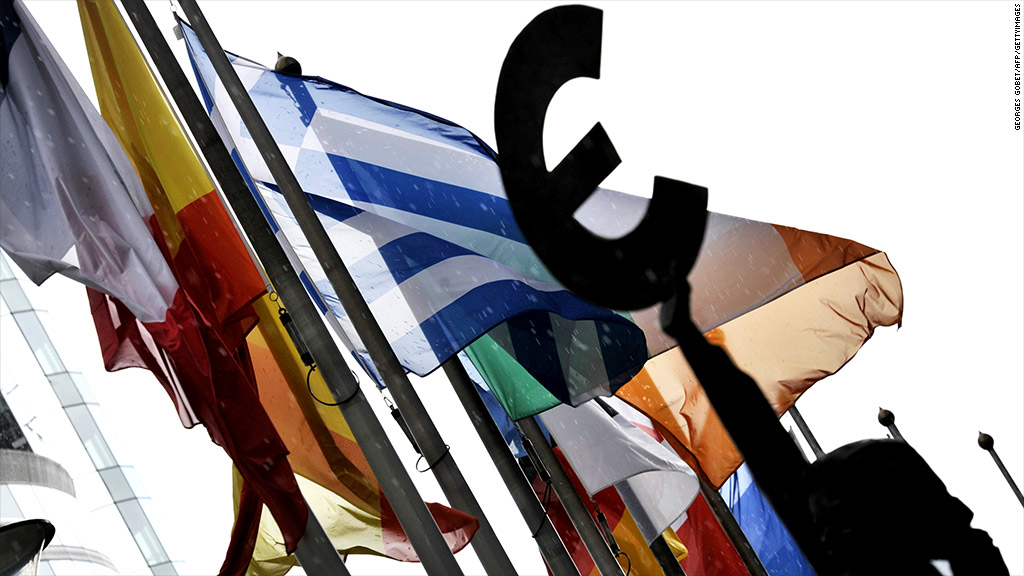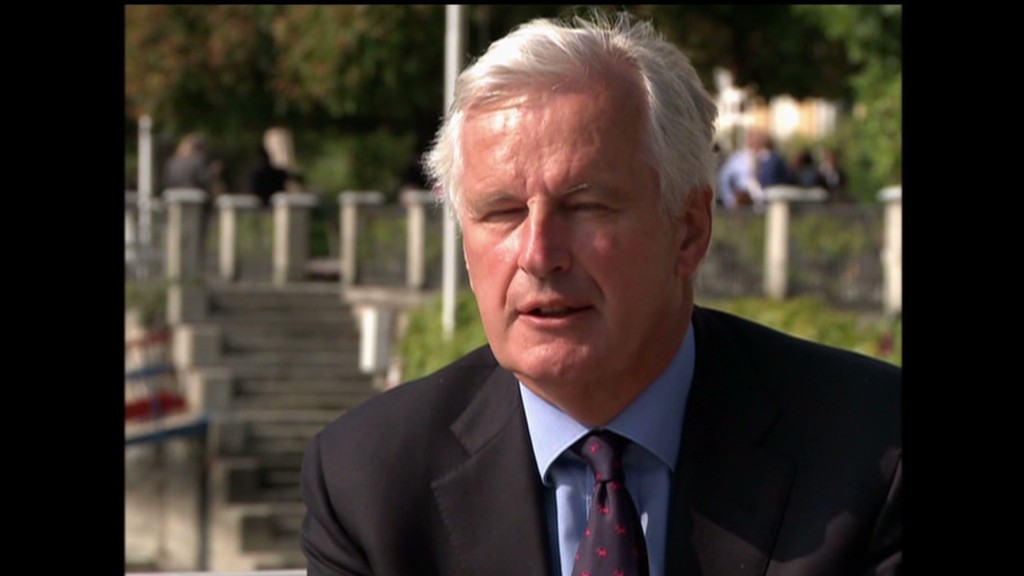
Douglas J. Elliott, who worked as an investment banker for two decades, is a fellow at the Brookings Institution.
The European Commission's detailed proposal for a "banking union" marks an important step toward bringing the Euro crisis under control and securing a sustainable future for Europe.
However, it also underscores just how much still needs to be done and how many political disputes need to be fought before such a union can be implemented.
Most observers agree that key features of a so-called banking union should include:
-- A common deposit guarantee fund
-- A single authority to "resolve" banks when they get into trouble
-- A common rulebook for banks
-- Integrated enforcement of the rulebook and overall supervision of banks
Europe has needed these things for years to make a fully integrated market in financial services truly workable. However, it took the Euro crisis to raise the stakes high enough to overcome the opposition of entrenched interests.
Troubled banks and troubled countries are closely intertwined in the current crisis. Ireland and Spain would be considerably less indebted if they had not needed to rescue their banks.

On the flip side, banks in many nations would be in much better shape if they did not own so many of their home country's bonds. That has often created a vicious circle where weakness at the government level and weakness at the banks have reinforced each other.
Breaking that link through a banking union will hopefully reduce some of the risks facing the eurozone.
The real key for the immediate crisis is creating a common deposit guarantee fund, so that depositors in troubled nations can be sure their money will be safe even if their own country is too weak to back up the guarantee credibly.
A severe enough bank run could lead to a sovereign default or even withdrawal from the euro. Bolstering depositor confidence is key to preventing such runs. For similar reasons, it would be very useful, and probably necessary, to have a common "resolution" authority to handle banks that become insolvent or are about to do so, similar to America's FDIC.
Furthermore, moving the deposit guarantees to the European level, and adding the responsibility for at least temporary funding for bank resolutions, spreads financial risk across the participating nations.
The strong countries will not agree to this without ensuring that a sound set of rules will be followed by all countries, and that supervisors will effectively oversee the safety and soundness of the banks.
All of these are good things, if executed correctly. But they also represent a big set of changes for these countries and their taxpayers. Proposals will be gone over with a fine tooth comb and national interests will be resolutely defended, although the common need to contain the Euro crisis will certainly help goad leaders into reaching an agreement.
Related: Euro rescue fund clears major hurdle
Even quite basic questions have major implications.
In particular, how should the roles be balanced between European Union institutions that represent all 27 member states; euro area institutions, such as the European Central Bank, which represent the 17 nations using the euro; and national supervisory authorities.
This is especially important for the UK, which wants the eurozone stabilized, but does not want to risk having a strong European level bank supervisor that could crimp London's style as a global financial center. Therefore, it insists that the banking union not be an EU institution.
One way in which the Commission's proposal tries to balance the EU versus eurozone issue is by giving the European Central Bank the key supervisory role for eurozone countries and any other EU member that wants into the banking union, but requiring the central bank to operate within the confines of a "single supervisory handbook" to be created by the European Banking Authority.
The EBA is an EU-level institution which, not coincidentally, is based in London.
It is very unclear how the overlap will work out between the European Central Bank's instructions to supervisors and the EBA's detailed supervisory handbook. What will happen if the EBA thinks the central bank is not really following the new handbook?
These fights may seem mind-numbingly boring, with their acronyms and sometimes obscure organizations. But there are over $40 trillion of bank assets to be supervised and the potential for hundreds of billions, if not trillions, of dollars that could be lost if things go wrong.
The balance of power within each of these bureaucratic organizations reflects alignments with certain groups of nations or financial and political interests.
Governments and European institutions will fight very hard for their concept of the right answer and to protect their influence.
The bottom line: The banking union will come and it will be helpful, but expect a lot of bumps along the way and an extended timeline, unless markets induce another wave of crisis that forces Europe's leaders to put aside the smaller fights in order to save the entire system.
Among the difficulties ahead, the part of the banking union structure that is most directly about money -- the deposit guarantees -- was not included in this proposal. But it will be offered up at some future point.


